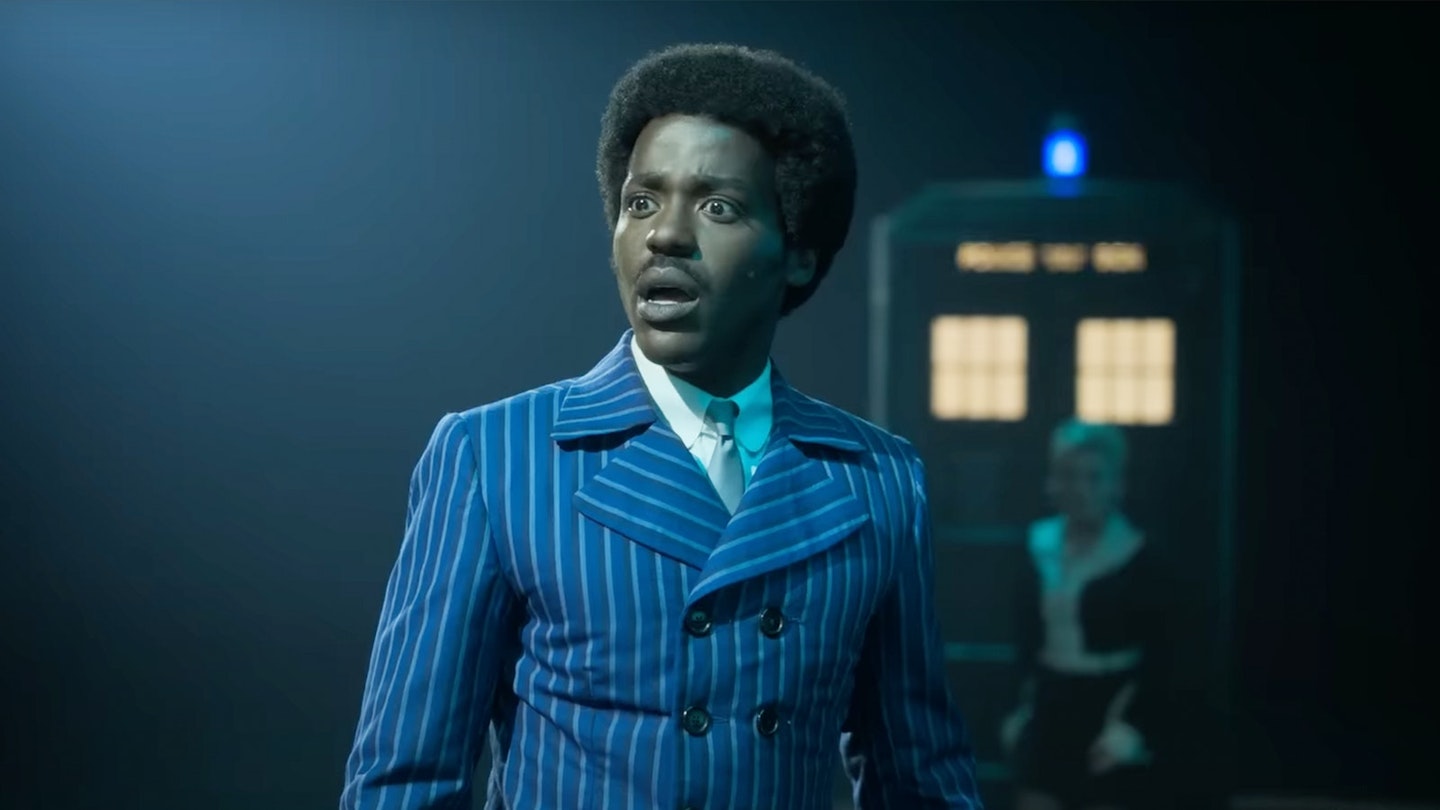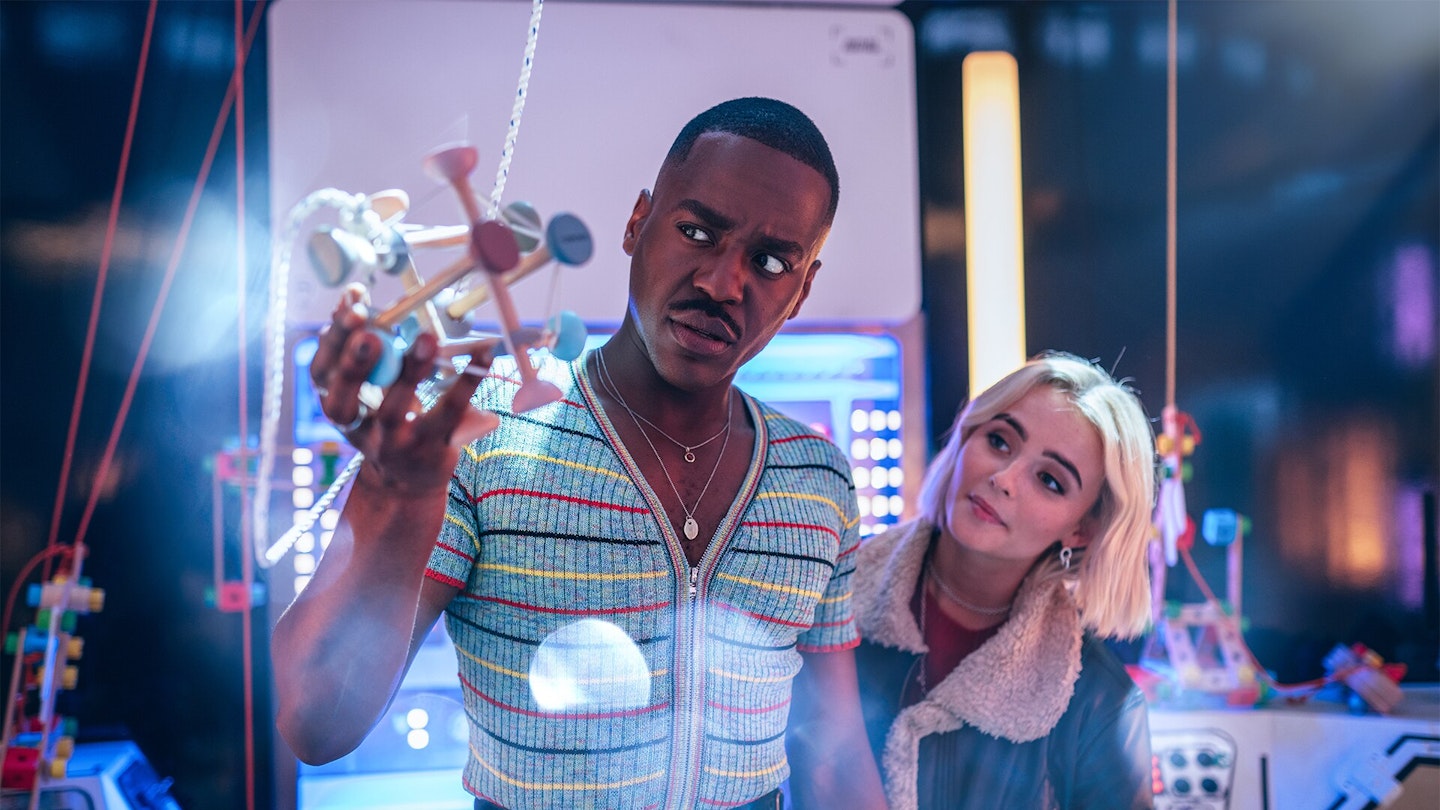It’s hard to believe it’s been almost half a year since Russell T. Davies’ triumphant return to the Doctor Who hotseat. Over the course of three blockbuster 60th anniversary episodes and a cracking Christmas special — the latter of which marked the introduction of Ncuti Gatwa’s Fifteenth Doctor and Millie Gibson’s new companion Ruby Sunday to the Whoniverse — Davies’ regeneration of the world’s longest-running sci-fi series got off to a flying start. And that regeneration continues apace as RTD’s first full season back at Who’s helm gets underway, with Gibson and Gatwa’s electric chemistry driving a promising if less-than-perfect two-episode premiere.

The Doctor and Ruby’s first proper spin in the TARDIS, season opener ‘Space Babies’, is a title-fittingly daft caper. A cosmic fairy tale set aboard a far future space station run by — you guessed it — space babies (twelve in fact), this first episode basically plays out like Alien. Well, Alien if the crew of the Nostromo were still in nappies and the xenomorph was a 90% more mucal organism with anglerfish teeth, that is. It’s a low-stakes, at times almost exhaustingly high-energy affair that nevertheless zips along breezily thanks to Gatwa and Gibson’s irrepressible charisma and youthful exuberance. And when RTD takes the time to dial back on the puerile toilet humour and Look Who’s Talking uncanny valleyness of it all, there are grace notes here — a sobering commentary on the refugee crisis; the Doctor telling a scared child that our uniqueness is our superpower; the stylishly handled reintroduction of the mystery of Ruby Sunday’s parentage — that serve as hearty reminders of just how intrinsically Davies understands Who.
Make no mistake: the future of Doctor Who has never been brighter
But if ‘Space Babies’ isn’t quite your tempo, then fear not: ‘The Devil’s Chord’, Davies’ hotly anticipated Beatles episode, is a doozy. Riffing on everything from Yesterday, to Davies’ own David Tennant and Billie Piper era outing 'The Idiot’s Lantern', to that one musical moment in Doctor Strange In The Multiverse Of Madness, ‘The Devil’s Chord’ is a lavishly designed and ingeniously executed Sixties-set tribute to the power of music. Scarce little can be shared about the episode’s plot machinations, but suffice it to say that Davies’ interest in exploring more superstitious and supernatural realms with Doctor Who’s latest reboot shows no signs of waning.
As the antagonistic entity at the heart of the Doctor and Ruby’s sojourn into an alt-history where the Fab Four — and seemingly the entire world — has lost its music, Jinkx Monsoon’s malevolent, musical, and fabulously unhinged Maestro is an operatic villain who sings very much in the Celestial Toymaker’s key. She’s an operatic force of nature in an episode that sees Gatwa and Gibson’s Doctor and Ruby put through the emotional wringer, flexing their dramatic chops to play beats on a spectrum of euphoria, grief, love, and fear — all whilst rocking the sharpest threads in Who history (props to the costume department.) By the time ‘The Devil’s Chord’ reaches its outré climax, the Monsoon effect has RTD, Gatwa and Gibson firing on all cylinders, pushing Who into uncharted territory as the series’ bigger picture is brought ever-so-slightly into sharper focus.
Now, after the giddy highs of Who’s 60th anniversary celebrations, there’s an inevitable comedown involved in these early episodes as RTD goes through the rebooting motions — especially in the series opener. The unapologetic goofiness is perhaps a little less giddily excusable after the fourth or fifth exclamation of “Space babies!”; the mystery box building can feel somewhat laboured in places as episode two tackles the bulk of the expositional heavy lifting; and the Rose 2.0-ness of Ruby Sunday isn’t entirely dispelled by some garishly on-the-nose call backs to early Eccleston era outings. But make no mistake: the future of Doctor Who has never been brighter. With bona fide megawatt stars front and centre, an influx of Disney dollars behind it, and RTD back at the helm, there’s an insatiable buzz surrounding this iconic show once more. And on present evidence, it would seem the best is yet to come.
